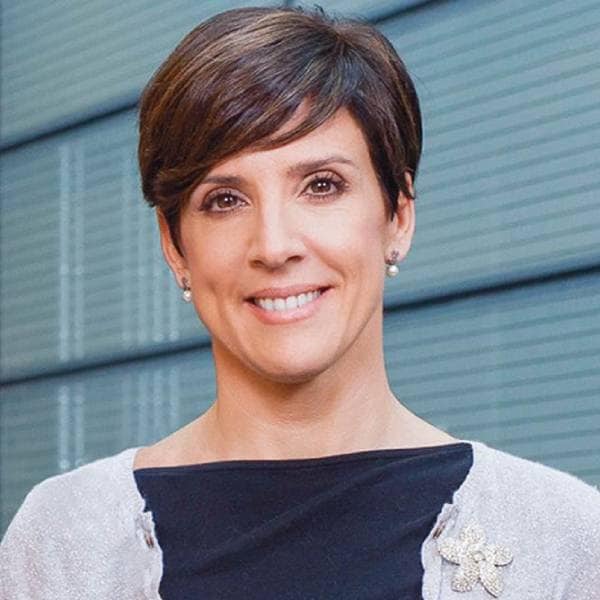Rotterdam | April 22-25, 2024
World Energy Congress 2024
PwC at the World Energy Congress
From 22-25 April 2024, all eyes were on Rotterdam as international energy stakeholders convened for the 26th World Energy Congress (WEC). As the platinum sponsor, PwC participated on stage, at the exhibition and in events throughout the four days of the Congress meeting, bringing leaders together to explore solutions on key topics including: the energy transition, e-Mobility, infrastructure, public sector and alternative fuels.
At our branded exhibition space attendees could refuel, meet with a PwC professional, join our series of topical sessions and grab a liquid nitrogen-powered ice cream.
PwC at the 26th World Energy Congress

Future Energy Leaders programme
PwC was delighted to sponsor the Future Energy Leaders Programme - now in its 40th year – is a community of exceptional young professionals who share a commitment to shaping the global energy future.
The programme is designed to build on the ideas and innovative potential of the next generation, to develop new ways of thinking and frame the future of our energy systems. It brings together a network of exceptional individuals from across the globe who represent the different players the energy sector is composed of, including government, energy industry, academia, civil society and social entrepreneurs.
Our content agenda

Our thematic focus: Bridging the Gaps
Global ambitions to reduce emissions aggressively have thrown into sharp relief large gaps between existing crucial technologies, infrastructure and investment—and the higher levels we’ll need in the immediate future.
In this video two of our leaders, Reid Morrison and Paul Nillesen, discuss the key gaps that need to be overcome in order to achieve the energy transition.
Read the full report
Bridging the gaps - Paul Nillesen and Reid Morrison
PwC leaders on the main stage
Top takeaways WEC 2024 - Emma Cox
Emma Cox
Global Climate Leader, PwC United Kingdom
Emma Cox leads the development of climate solutions for clients as they navigate the challenges and opportunities resulting from a changing climate. This includes developing digital tools to help clients use climate-related data to make better business decisions, and upskilling PwC people to integrate climate considerations into all client engagements.
Emma also leads PwC’s climate-related engagements with global organisations including the World Economic Forum, World Business Council for Sustainable Development, Sustainable Markets Initiative and the United Nations Framework Convention on Climate Change.
Emma spoke on the following main stage session:
- Faster, fairer, further: Decarbonisation with justice
23 April, 10:15 - 11:15 CEST
Watch the video to see Emma's key takeaways from the Congress.
Top takeaways WEC 2024 - Agnieszka Gajewska
Agnieszka Gajewska
Global Government & Public Sector Leader, PwC Poland
Agnieszka leads the PwC Global Government & Public Services network of more than 10,000 professionals, helping governments around the globe maximise positive impact for their citizens.
She discussed recent regulation and public intervention trends that deliver on the energy transition and growth agenda at the World Energy Congress on the following main stage session:
- Global energy governance: who is leading
24 April, 11:45 - 13:00 CEST
Watch the video to see Agnieszka's key takeaways from the Congress.

Jeroen van Hoof
Global Utilities Advisory Leader, PwC Netherlands
Jeroen leads PwC’s global network of specialists for the Global Energy, Utilities & Resources industry. He is also the global Power & Utilities leader and the Energy, Utilities & Resources Assurance leader. Additionally, Jeroen chairs the Dutch chapter of the World Energy Council.
During his 25-year career at PwC, Jeroen has advised many companies, regulators, policy makers and local governments on the ongoing energy transition.
Jeroen spoke on the following main stage session:
- Accelerating energy transitions in Europe: A new (in)secure context
24 April, 14:15 - 15:00 CEST
Our PwC booth sessions
We hosted a series of fireside chats, topical sessions and interactive demos.
- Monday, 22 April
- Tuesday, 23 April
- Wednesday, 24 April
- Thursday, 25 April
Monday, 22 April
- PwC booth opening ceremony
Time: 13:00 - 13:15
Host: Jeroen van Hoof
- Transforming energy demand
Time: 13:15 - 13:45
Speaker: Rob Turner, Alexandre Golisano
- Sustainable mobility fuels with WEC Germany
Time: 14:00 - 14:45
Speakers: Stuart Neil, Dirk Niemeier, Carsten Rolle, Folker Trepte
- Demo: Energy Demand Experience
Time: 15:00 - 15:45
Speakers: Thomas Hendrikx, Renate de Lange-Snijders, Travis Sheppard, Rob Turner
- New Zealand's renewables journey
Time: 15:45 - 16:15
Speakers: Sam Elder, Tina Schirr, Lynne Taylor, Andrew Wilshire
Tuesday, 23 April
- Sustainable chemicals: Essential for a thriving energy transition
Time: 10:00 - 10:30
Speakers: Aitor Arzuaga, Volker Fitzner, Jurgen Peterseim
- H2 Strategy& study: Navigating the hydrogen ecosystem
Time: 10:45 - 11:15
Speaker: Dirk Niemeier
- Hydrogen market scale
Time: 11:30 - 12:00
Speakers: Markus Exenberger, Jurgen Peterseim, Folker Trepte
- Demo: AI net zero tracking and forecasting tool
Time: 12:00 - 12:30
- Demo: Pathways to Paris transformational tool - session 1
Time: 13:00 - 13:30
- Catalytic collaboration for green growth
Time: 14:30 - 15:00
Speaker: Agnieszka Gajewska
- Bridging the policy gap
Time: 15:30 - 16:00
Speakers: Agnieszka Gajewska, Maxine Tillij
Wednesday, 24 April
- Demo: Hydrogen calculator
Time: 10:00 - 10:30
- From gas to green: How infrastructure companies pioneer the hydrogen revolution
Time: 10:30 - 11:00
Speakers: Helmie Botter, Heiko Seitz
- Power Shift: how EV battery swapping revolutionises energy grids and storage
Time: 11:15 - 11:45
Speakers: Arthur van Mook, Heiko Seitz
- Strategic flexibility: The key to enable better value and sustainability in infrastructure projects under uncertainty
Time: 12:00 - 12:30
Speakers: David Allaverdi, Michel-Alexandre Cardin
- Demo: Grid flexibility tool
Time: 12:30 - 13:00
- Future Energy Leaders: Shaping the future of energy pitching contest
Time: 15:30 - 17:30
Judges: Agnes Koops-Aukes, Helen Lapeyra
Thursday, 25 April
- Demo: Pathways to Paris transformational tool - session 2
Time: 10:00 - 10:30
Session speakers
We were delighted to welcome both PwC and guest speakers to our exhibition space for discussions on a range of topics.

Aitor Arzuaga
General Manager, Alba Emission Free Energy (Spain)

Sam Elder
GM Energy Futures, Orion Group (NZ)

Arthur van Mook
sr. Power Business Development Manager, NIO Netherlands BV

Tina Schirr
Executive Director, BusinessNZ Energy Council (BEC)

Helmie Botter
Manager Business Development Hydrogen, N.V. Nederlandse Gasunie

Markus Exenberger
Chairman of the Executive Board / CEO, H2Global Stiftung

Stuart Neil
Director of Strategy and Communications, International Chamber of Shipping

Michel-Alexandre Cardin
Associate Professor in Computational Aided Engineering, Imperial College London

Alexandre Golisano
Country President, Schneider Electric The Netherlands

Dr Carsten Rolle
Secretary General, World Energy Council – Germany

David Allaverdi
Product Architecture & Resilience, Senior Manager, PwC Germany

Agnieszka Gajewska
Global Government & Public Sector Leader, PwC Poland

Renate de Lange-Snijders
Global Sustainability Markets Leader, Partner, PwC Netherlands

Paul Nillesen
Global Utilities Advisory Leader, Partner, PwC Netherlands

Lynne Taylor
Energy Markets Sector, Managing Director, PwC New Zealand

Andrew Wilshire
Energy and Utilities, Partner, PwC New Zealand

Jon Chadwick
Global Sustainability - Energy Transition, Partner, PwC Australia

Will Jackson-Moore
Partner, Global ESG Leader, PwC United Kingdom

Helena Lapeyra
Global Energy, Utilities and Resources Advisory Leader, Partner, PwC Spain

Jurgen Peterseim
Sustainability Services, Director, PwC Germany

Folker Trepte
Utilities and Resources Leader, Partner, PwC Germany

Volker Fitzner
Chemicals Industry, Partner, PwC Germany

Agnes Koops-Aukes
CEO and Chair of the Board of Management of PwC Netherlands

Dirk Niemeier
Clean Hydrogen and Alternative Fuels, Director, PwC Germany

Heiko Seitz
eMobility Leader, Director, PwC Middle East

Rob Turner
Energy and Resources Leader, Partner, PwC UK
Join the Energy Demand Experience
How do your business decisions concerning energy demand affect your company’s overall growth, environmental impact and carbon footprint? This unique and interactive digital experience, developed in collaboration with Microsoft, is designed to highlight how demand-side management can create financial savings and reduce carbon emissions. Our specialists will walk you through the choices you could make to better manage your business’s energy consumption and deliver value to your shareholders, customers and employees.
WEC - Energy Demand Experience
World Energy Congress - local experience
PwC Netherlands hosted the House of Energy, bringing together leaders to bridge the gaps to a decarbonised future.













